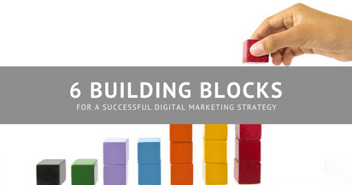Marketing For Authors: What Is It Really And Do You Have To Do It?
Are you here because you want me to let you off the hook?
You want me to tell you marketing isn’t important and that, because you’re an author, you’re exempt from whatever some stranger tells you to do when it comes to promoting the book you’ve just written.
Unfortunately, I can’t do that.
Whether you’ve written a business book to promote the services you offer, your fantasy adventure, or the next “Great American Novel,” no one will care about it unless you give them a reason to.
(See: No One Wants To Read Your Sh*t by Steven Pressfield)
If they don’t care, they aren’t buying your book, reading it, shoving it into the hands of all their friends, or learning about what services you offer that can solve their very specific problems.
Essentially, the book you poured your time and soul into won’t make you any money. And, as much as we’d all like to say we wrote for the pleasure of writing, that won’t support your business, your living expenses, or even writing another.
Unless it’s your goal to go broke writing books—in which case, why are you here and why did you publish instead of just writing it—you have to learn about how to market your book effectively. 
Luckily, there’s a way to do so that doesn’t feel smarmy or distracting or wasteful or [insert your worst-nightmare adjective here].
The Problem With Marketing For Authors
It’s no wonder many authors shy away from marketing.
Most don’t understand what marketing is let alone what it can do. So chances are, you’re more interested in spending your brainpower coming up with the next book concept than building a system you don’t know will even work.
Perhaps you’re one of those authors who took a course on ads for Facebook or using Amazon effectively and you came away having spent more on the course or advertising than you made back in sales.
Maybe you had an experience with another author who pushed you to buy their book so much you had to mute them and you don’t want to alienate your own audience in the same way.
Whatever the case, the struggles you’re having with marketing, come from a misunderstanding of what marketing is and how to apply it as an author.
(Please note, I’m assuming you already understand that being an author is in fact like running a business because you need to earn a living somehow and you’d like it to be with your books or the business your books promote.)
What Marketing Is
The definition of marketing is confusing and changes depending on who you ask.
HubSpot defines marketing as the process of getting people interested in your company's product or service, which they say comes from understanding your ideal customer and their interests, and that it pertains to all aspects of your business.
Seth Godin says you’re doing marketing any time you need to persuade someone to take action.
Tim Grahl of booklaunch.com thinks of marketing as the act of creating long-lasting connections with people and then being relentlessly helpful.
And, finally, the dictionary definition of marketing is as follows:
mar·ket·ing | ˈmärkədiNG |
Noun
the action or business of promoting and selling products or services, including market research and advertising
So, I took all that and defined Marketing for Authors as the actions you take to introduce lots of people to your book(s), to turn some of them into fans who will purchase and share your content, and to repeat the process, again and again, every time you come out with something new.
Essentially, you’re trying to surround yourself with people who want to buy and read your books and create a way to keep in touch with them every time you come up with something new they’d love to read/view/listen to.
That means you need:
- A clear and easy-to-understand way of talking about what you do
- A way to introduce people to you
- A way of capturing their information so you can continue to communicate with them
- A strategy for continuous communication
In other words, you need to build a GrowthStack to attract and delight your audience. Yes, even as an author.
What Marketing Is Not
Marketing is not being a used car salesman. It’s not buying all the Facebook ads. It’s not spamming everyone who connects with you into buying your book.
Some of those things are tools you can use and some of them you should avoid—because no one wants to be spammed. The point is, however, marketing is not about gathering tools and applying them everywhere you can possibly think.
So many sites will give you great information about running ads or launching your book to hit a bestseller list. They’ll tell how to create reader personas, build a website, design a good cover, run promotions, use social media, participate in live events, and even the ever-important part of writing a better book.
But they don’t tell you why you’re doing those things so you can focus on only the things that work for you.
Because marketing isn’t about any one tool or tactic.
Where a tool is anything you use to make your job easier (like Facebook ads, which help you spread the word about your book). And a tactic is an action or strategy carefully planned to achieve a specific end (like building an email list to continue to communicate with your audience).
It’s about building those tools and tactics into a strategy that introduces people to your work, gets them interested in more, asks them to purchase, and continues to replicate this process over time.
Or, like Tim says, creating long-lasting connections, which he does by being relentlessly helpful (a tactic—and a good one at that).
What Tactics And Tools Can You Use?
The most obvious is your author website—which should include a sign up to an email list you curate so you can communicate with your fans over time. But that’s not the only way people will find you (and you might not even need a website for that matter).
You might be on LinkedIn, Instagram, or Facebook depending on where your ideal reader hangs out.
Maybe you ask to be a guest on podcasts related to your book. Or, you might send your book to influencers who will review it or share it with their audience.
In fact, check out BookBub and Reedsy and BookLaunch.com for marketing activities you can try. Including, but not limited to:
- Identify a target audience
- Build an author platform
- Be a guest on a nationally televised program
- Get interviewed on a podcast
- Prepare your book marketing assets (free bookmarks, resources, etc.)
- Run a preorder campaign
- Get book reviews
- Have a popular blogger write an extensive post about you
- Run ebook price promotions
- Speak at book clubs
- Spread the word on social media
- Host author Q&As
- Create reader communities
- Create box sets and bundles
- Participate in live events
- Start a blog or podcast or Youtube channel and post regularly
- Publish new research and studies in your field
- Release a novella based in your novel’s world
The point is, whatever strategy you implement should be closely related to who you’re trying to reach, what tools and tactics you want to use, and what actually moves the needle for you (i.e. sells copies of your book).
Which means you need to figure out how to introduce people to your work, to turn them into fans who will purchase from you, and to collect their information so you can keep in touch and not have to find those fans all over again each time you release a new book.
Nowhere in there does it say you must do All the Marketing Things.
Because you can’t. And if you try, you’ll burn out and get nowhere. Remember, the only thing you’re trying to do is to get people’s attention and drive them to purchase your book—or share it with others.
How you do so is up to you and should be authentic to who you are and the work you’ve created.
What If You Need Help?
What if you’re having trouble identifying what you need to do to get your fan’s attention, to gain their trust, and to continue to interest them over time?
You can join the QuickStart Academy! It’s filled with people just like you who have questions about what they should be doing and want to know what really works. We’ve done the work to promote Steve’s book, The Golden Toilet, and are ready to teach you everything we’ve learned from that process in the Academy.
It’s full of actionable advice and resources you can take to market your book like a pro. 




